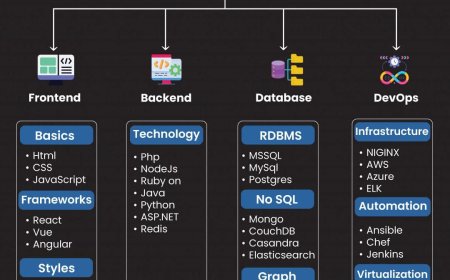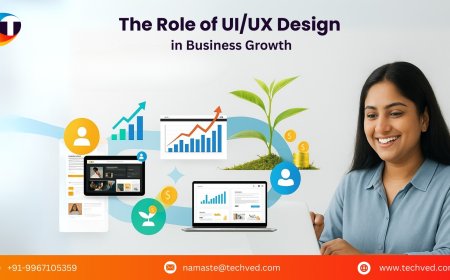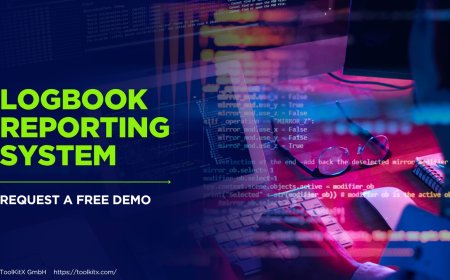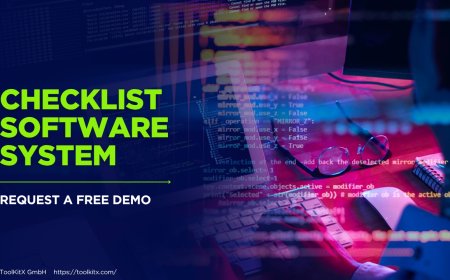What Is the Real Value of a Generative AI Solution for HR?
Discover how generative AI is transforming HR by streamlining recruitment, enhancing employee engagement, and unlocking data-driven decision-making for smarter workforce strategies.

Human Resources (HR) has long been a function centered around people, yet it is increasingly becoming a playground for advanced technologies. In recent years, the rise of Generative AIa form of artificial intelligence capable of generating text, images, and even decision-making insightshas ushered in a new era of transformation. But what is the real value of a Generative AI solution for HR? Is it just another shiny object in the tech landscape, or is it fundamentally reshaping how organizations attract, manage, and retain talent?
This blog explores the practical impact of Generative AI in HR, breaks down use cases, analyzes real-world benefits, and addresses challenges, ultimately revealing its true business value.
1. Understanding Generative AI in HR
Before diving into applications, lets clarify what Generative AI is in the context of HR. Unlike traditional rule-based systems, Generative AI uses deep learning models (like GPT-4) to generate content, automate processes, and provide contextual insights. This means it can:
-
Write job descriptions
-
Create personalized onboarding content
-
Automate responses to employee questions
-
Generate interview questions based on role-specific needs
-
Provide data-driven recommendations for performance reviews
Generative AI doesn't just store and retrieve informationit creates new content based on learned patterns, offering unprecedented agility to HR teams.
2. The Key Areas Where Generative AI Adds Value in HR
A. Recruitment and Talent Acquisition
Recruitment is one of the most time-consuming HR functions. Generative AI accelerates and enhances this process in several ways:
-
Job Description Generation: Instead of HR manually writing each job listing, AI can generate well-crafted descriptions tailored to the skills, responsibilities, and tone of the organization.
-
Resume Screening: AI can analyze thousands of resumes quickly, prioritizing candidates who match job requirements.
-
Candidate Outreach: AI-generated personalized messages can be sent to potential hires, increasing engagement.
-
Interview Preparation: It can generate structured interview guides customized to the candidates profile and the role.
Impact: Time-to-hire is reduced, recruitment becomes more inclusive, and human bias is minimized.
B. Onboarding and Training
Generative AI can streamline onboarding processes, making the transition smoother for new hires:
-
Customized Onboarding Documents: Personalized employee handbooks, welcome messages, and training plans can be created instantly.
-
AI-Powered Chatbots: 24/7 support for answering common HR questions like benefits, policies, and procedures.
-
Microlearning Modules: Generative AI can convert large training documents into digestible, interactive learning formats.
Impact: New employees are more engaged from day one, and training is more accessible and adaptive.
C. Performance Management
Traditional performance reviews are often riddled with subjectivity and inconsistencies. Heres where AI steps in:
-
Feedback Summarization: AI can synthesize 360-degree feedback into actionable insights.
-
Goal Tracking: Generative AI tools help employees set SMART goals and track them using real-time data.
-
Personalized Coaching: Based on performance trends, AI can recommend learning materials or coaching sessions.
Impact: Performance reviews become more data-driven, fair, and development-oriented.
D. Employee Engagement and Retention
Keeping employees engaged is crucial, and AI can help personalize the employee experience:
-
Pulse Surveys: AI can analyze sentiment from employee responses and flag areas of concern.
-
Personalized Communication: AI can draft newsletters, recognition messages, or updates tailored to different teams or departments.
-
Exit Interview Analysis: AI identifies trends and reasons for attrition, allowing HR to act proactively.
Impact: Engagement improves, turnover reduces, and HR has clearer visibility into employee morale.
E. HR Analytics and Strategy
Strategic decision-making in HR often relies on complex data. Generative AI can simplify and enhance this:
-
Workforce Planning: Predict future hiring needs and skill gaps.
-
Compensation Analysis: Generate reports comparing internal compensation with market data.
-
Diversity & Inclusion Reports: AI helps track DEI initiatives and progress over time.
Impact: HR becomes a proactive strategic partner rather than a reactive support function.
Real-World Success Stories
Several companies have already unlocked the value of Generative AI in HR:
-
Unilever: Uses AI in recruitment to assess candidate video interviews using facial expressions and word choices, reducing hiring bias.
-
IBM: Employs AI to recommend career development paths for employees, increasing retention and satisfaction.
-
SAP: Integrated AI into its SuccessFactors platform to offer intelligent suggestions on job postings, feedback, and learning.
These success stories show that Generative AI isn't hypotheticalit's delivering measurable results.
Measuring ROI of Generative AI in HR
To evaluate the real value, companies can track several key metrics:
-
Cost savings: Reduced reliance on manual HR processes.
-
Time savings: Faster hiring, onboarding, and document generation.
-
Improved employee satisfaction: Through personalized experiences.
-
Reduced turnover: Proactive engagement and retention strategies.
-
Increased diversity: By mitigating bias in recruiting and performance reviews.
A successful Generative AI deployment is not just a tool upgradeits a transformation in how HR contributes to business goals.
Conclusion
The real value of a Generative AI Solution for HR lies not just in automation, but in augmentation. It allows HR professionals to shift from administrative tasks to strategic initiativesimproving decision-making, elevating employee experiences, and aligning people strategies with business goals. When implemented thoughtfully, it turns HR from a cost center into a value generator.
In todays fast-changing workplace, where agility, personalization, and data-driven insights are critical, Generative AI offers a compelling opportunity to future-proof HR operations. Organizations that embrace this shift early will not only gain a competitive edge in talent acquisition and retention but will also foster more inclusive, efficient, and engaging workplaces.

























